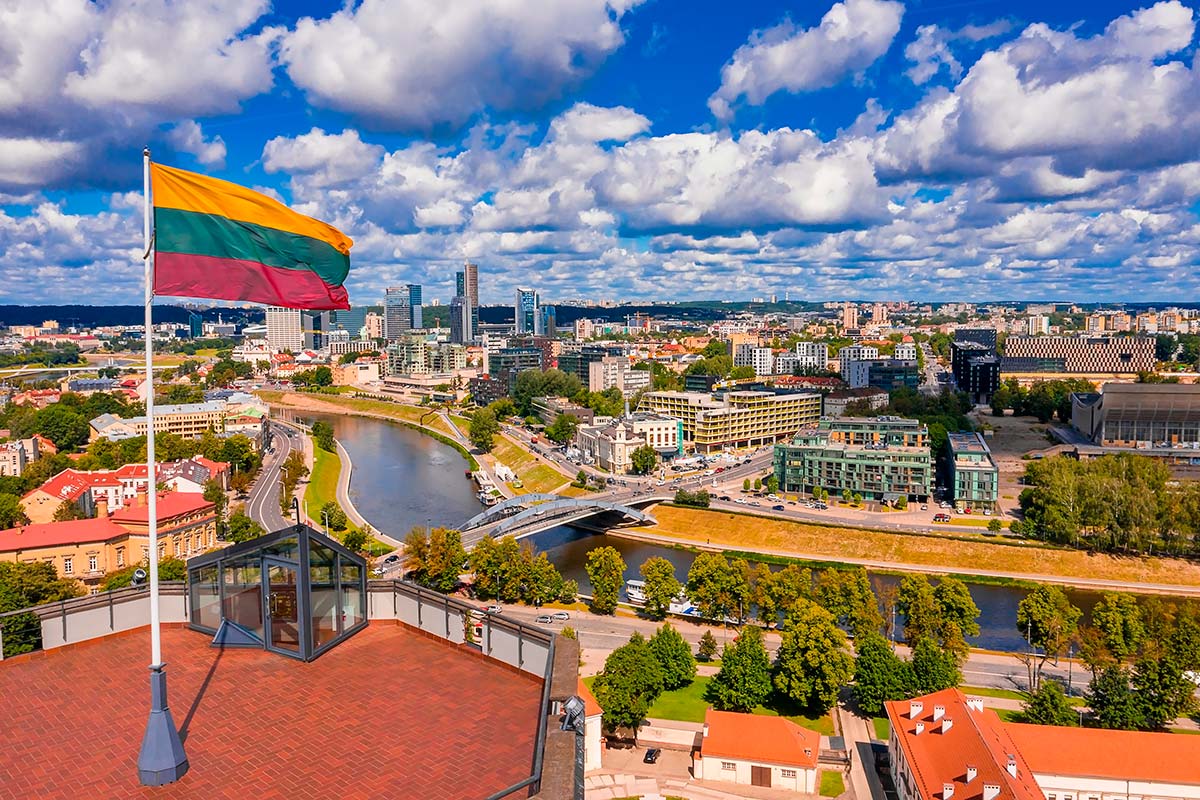Content
Spanish citizenship is a legal bond between a person and the state, establishing mutual obligations. A citizen of the country can rely on government protection and a full set of rights granted by law. Citizenship of the kingdom can be obtained by legally residing in its territory for at least 10 years, through a fast-track procedure based on origin, or on other grounds.
A Spanish passport is a document that allows one to live and work freely in any EU country, travel within the Schengen Area without a visa or restrictions, grow a business in a favorable environment, access quality healthcare, and study at leading universities worldwide. The Spanish passport automatically grants its holder EU citizenship, which in turn opens up opportunities for a comfortable and well-supported life in Europe.
Advantages of Spanish Citizenship
The status of a citizen of the Kingdom grants the right to:
- reside in any EU country;
- simplified entry to 190 countries worldwide;
- conduct business within Spain and the European Union;
- employment in European companies;
- access to medical care and social benefits;
- participation in Spain’s public and political life.
Citizenship Law
The granting of Spanish citizenship to foreigners is governed by Articles 17–26 of the Spanish Civil Code. This document outlines the procedures for obtaining a Spanish passport by right of blood, birth on Spanish soil, or naturalization. In addition, the Law on the Rights and Freedoms of Foreigners and Their Social Integration and the Law on Support for Entrepreneurs and Their Internationalization define the conditions under which foreign investors and entrepreneurs may obtain residency with a subsequent opportunity to acquire citizenship status. Article 11 of the Spanish Constitution addresses the topic of dual citizenship, which is recognized by the country but with certain limitations.

Procedure for Obtaining Spanish Citizenship
To obtain a Spanish passport, an applicant must comply with the country’s immigration policy during their prior stay in the Kingdom, as well as demonstrate sufficient financial resources. The most common route for those without Spanish ancestry to acquire citizenship is naturalization. This path involves relocating to Spain based on an eligible ground (such as employment, business, or education) and then successively completing the stages of temporary and permanent residency.
The process of obtaining Spanish citizenship includes the following steps:
Visa
To be eligible for an extended stay in the country, one must obtain a type D entry visa. This visa is valid for three months. In order to receive a long-term residence permit, the applicant must choose and verify the basis for entry—such as employment or business activity. The application is submitted to a Spanish consulate or visa center. It must be accompanied by a national and foreign passport, a photo, health insurance, a police clearance certificate, and additional documents confirming the grounds for entering Spain.
Temporary Residence Permit (TIE)
A foreign national who is eligible to reside in the Kingdom for more than 90 days becomes a temporary resident. Within one month of entering the country on a visa, the migrant must contact the local police department to obtain a temporary residence card (TIE). Depending on the purpose, foreign nationals are issued various types of permits—with or without the right to work, self-employment, research, or family reunification. The standard validity of a Spanish residence card is one year, with the option to renew if the grounds remain valid.
Permanent Residence (PR)
Foreigners who have legally resided in the country for five years are eligible to obtain permanent resident status. A key requirement is to prove the continuity of residence in Spain. This means not leaving the country for more than 6 consecutive months or more than 10 months in total during the temporary residency period. The applicant must also present a health insurance policy, evidence of sufficient financial means, and proof of owned or rented accommodation. The PR card is issued for five years and is subject to periodic renewal. The status of permanent resident is indefinite.
Citizenship
After legally residing in Spain for 10 years, foreigners can apply for citizenship. The applicant must have lived continuously in Spain for the required period (not leaving for more than six consecutive months or more than ten months in total), possess Spanish language skills, and be well integrated into society, which is verified by passing a state examination. Family members may be included in the citizenship application. The review period for the application is up to one year.
Discover new opportunities with EU citizenship
Grounds for Obtaining Spanish Citizenship
There are several pathways to acquire Spanish citizenship:
- By Descent.
Children of Spanish nationals are entitled to citizenship. The applicant must prove their ancestry (at least one parent must be Spanish) and legally reside in Spain for one year before applying for citizenship. - By Option.
This method applies to children adopted by Spanish citizens. A child automatically acquires Spanish citizenship if adopted before the age of 18. Upon reaching adulthood, they may either retain the Spanish passport based on the parent’s nationality or formally renounce it. - By Naturalization.
Entering Spain on a visa, followed by obtaining temporary and then permanent residency, is the standard route to citizenship through naturalization. The required period of legal residence in Spain to become eligible for citizenship is 10 years. - Through Investment.
Investing in the Spanish economy or real estate provides the basis for obtaining a residence permit. After five years, the investor may acquire permanent residency, and after 10 years—similar to the naturalization route—they may apply for citizenship.
Let’s take a closer look at all the possible grounds for acquiring a Spanish passport for citizens of other countries.
Investment
Investors may obtain a residence permit under the Golden Visa program, which offers the key advantage of no minimum stay requirement in Spain (residents are not obligated to spend at least 183 days per year in the country). Financially dependent family members may also qualify for a Golden Passport along with the main applicant—this includes a spouse and children under 18 or older children who remain financially dependent.
The Golden Visa program requires one of the following capital investments:
- From €500,000 in real estate (a single property or several totaling half a million euros);
- From €1,000,000 in a Spanish bank account with the deposit maintained during the residence period;
- From €2,000,000 in capital contribution to the Spanish economy.
Initially, the residence card is valid for two years, with the option to renew for an additional five-year period.
Naturalization
The integration period for a foreign national to become eligible for Spanish citizenship is 10 years. Initially, the applicant enters Spain on a long-term visa, after which they may obtain a temporary residence card. Upon completing five years of residence, they become eligible for permanent residency. Five years of legal stay in Spain under PR status grants the right to request Spanish nationality.
Entry into Spain and subsequent residence renewals may be based on one of the following grounds:
- Enrollment in a local university;
- Employment (as an employee or self-employed);
- Family reunification.
The applicant must prove they have no criminal record in their home country and obtain a similar clearance from Spain. They must also demonstrate stable income, secured housing, and evidence of continuous legal residence in Spain for 10 years, along with the legal basis for their stay.

Option
Foreign nationals under the guardianship of Spanish citizens have the right to choose their citizenship. This applies to minors adopted by ethnic Spaniards, as well as individuals over the age of 18 who have been under such guardianship for at least two years. Applicants pursuing Spanish citizenship by option are not required to renounce the nationality of their country of origin.
Descent
Foreign nationals are considered Spanish by birth if:
- Their parents (or at least one of them) are citizens of the Kingdom of Spain;
- They were born to parents (or one parent) who were also born in Spain but are not Spanish citizens themselves—with the exception of children born to diplomats;
- They were born in Spain to foreign parents who are stateless;
- Their origin is unknown, but their place of birth and initial residence is Spain.
A child may obtain Spanish citizenship by descent through a simplified procedure—the applicant is only required to have resided in Spain for one year before submitting the application.
Marriage
According to the «Spanish Citizenship Law», the spouse of a Spanish citizen is eligible to apply for a Spanish passport after one year of legal residence under a residence permit. The country where the marriage was registered is irrelevant; however, civil authorities retain the right to verify that the marriage is not fictitious. The union must be legally formalized—a civil partnership does not grant the right to legalization.
Widows and widowers of Spanish citizens may also acquire a Spanish passport. If the marriage was valid at the time of the citizen’s death, and the foreign spouse had resided in Spain for at least 12 months, they may apply for citizenship through an expedited process.
Comparative Table of Citizenship Acquisition Methods
| Method | Timeline | Key Requirements |
|---|---|---|
| Investment | 10 years | Investment from €500,000 |
| Naturalization | 10 years | Continuous legal residence in Spain |
| Descent | 1 year | Proof of Spanish ancestry or birth in Spain with unknown origin |
| Option | 1 year | At least one year of residence and confirmation of guardianship |
| Marriage | 1 year | At least one year of residence and confirmation of legal marriage |
To reduce the time required for legalization in Spain, foreigners can obtain EU citizenship through an expedited procedure. Passport holders can live, work, and study in any EU country without restrictions. For more detailed information, please contact a specialist.
Required Documents for Obtaining Spanish Citizenship
Applicants over the age of 18 must personally submit a citizenship application to the immigration office at their place of residence. Applications on behalf of a minor must be filed by a legal representative. The basic application package includes:
- A completed application form, which can be downloaded from the Ministry of Justice website or obtained directly from the Spanish immigration office;
- National and foreign passports;
- Birth certificate translated into Spanish and legalized;
- Police clearance certificates from both the country of origin and from Spain;
- Medical certificate confirming the applicant’s health status;
- Proof of residence;
- Evidence of sufficient income to support continued residence in Spain (including for family or children);
- Additional documents verifying the grounds and circumstances for acquiring Spanish citizenship;
- Receipt confirming payment of the applicable government fee.
If the applicant is not eligible for dual citizenship, they must also submit proof of renunciation of their original citizenship.
Reasons for Citizenship Rejection
Grounds for a negative decision by the immigration authorities regarding an applicant’s request for Spanish citizenship may include:
- Submission of an incomplete application package;
- Errors, knowingly inaccurate information, or fraudulent documents;
- Violation of immigration rules or overstaying permitted time in the country;
- Recorded offenses committed by the applicant in Spain or other countries;
- Insufficient financial means to sustain long-term residence in Spain.
How to avoid such consequences?
The most reliable way to legalize in a European country is under the guidance of experienced professionals. Legal experts handle all aspects related to documentation and accuracy, ensuring that the data submitted to the authorities is correct and verifiable. Migration specialists provide an objective assessment of the applicant’s situation, evaluate their prospects for obtaining a Spanish passport, and minimize the risk of rejection.
Dual and Second Citizenship in Spain
The concept of dual citizenship implies the possibility of obtaining a Spanish passport while retaining the applicant’s original nationality. In such cases, both countries recognize the individual as a dual national holding two valid passports. Spanish legislation permits this option for foreign nationals, but with certain restrictions. Only citizens of countries that have signed a dual nationality agreement with Spain are eligible. These countries include Andorra, the Philippines, Equatorial Guinea, France, Portugal, and several Latin American nations.
There is no such agreement between Spain and certain countries. Therefore, citizens of these countries must submit a formal renunciation of their original nationality when applying for a Spanish passport. However, an important nuance is that this declaration of renunciation has no legal effect in the applicant’s home country, meaning the original citizenship is not formally revoked. In this case, the principle of second citizenship applies — in each respective country, the individual is considered solely as its own national.
How to Obtain a Spanish Passport
The process for applying for Spanish citizenship involves the following stages:
- Document Submission.
The application must be submitted either in person or electronically to the Civil Registry Office (Registro Civil) corresponding to the applicant’s place of residence in Spain. - Examinations.
Applicants must pass two tests—one assessing Spanish language proficiency and the other covering knowledge of the country’s history, culture, and legal framework. If the applicant already holds a recognized certificate confirming Spanish language proficiency, only the second test is required. - Decision-Making Process.
The review period for a citizenship application can take up to 12 months. If approved, a notification will be sent to the email address provided in the application. - Oath of Allegiance.
Once the citizenship is granted, the applicant will be given a date to take the oath of allegiance to the monarchy. After the oath is taken, citizenship registration is completed. The Spanish passport is then issued by the Civil Registry Office at the applicant’s registered place of residence.
Assistance with Obtaining Spanish Citizenship
The process of legalization in Spain involves certain nuances depending on the chosen pathway and the grounds for acquiring citizenship. To ensure everything is done correctly and to achieve a positive outcome, it is essential to thoroughly understand the legal framework governing the issuance of a Spanish passport. It is easier and more reliable to go through the procedure with the support of experienced professionals who provide assistance at each stage:
- Assessment of the applicant’s situation and selection of the most suitable pathway to Spanish citizenship;
- Preparation of documents, collection of certificates, verification of data for accuracy and validity;
- Support in submitting the application to government authorities and resolving current formalities;
- Guidance for exam preparation — experts provide sample questions and answers in Spanish;
- Monitoring the status of the application and keeping the applicant informed of updates;
- Assistance with the successful study and delivery of the oath of allegiance to Spain;
- Ongoing advisory support during the final stage of passport issuance.
Testimonials on Obtaining Spanish Citizenship and Passport
The path to acquiring Spanish citizenship may take up to 10 years in the case of naturalization. Testimonials from applicants who have successfully received their desired passport confirm that the lengthy process is well worth the new opportunities and prospects it unlocks in Spain and across Europe. The procedure can be simplified, and many unnecessary worries and complications avoided, by working with professionals.
Applicants point out that the most complex stage—where expert support is especially valuable—is the document collection phase. Foreign nationals often find it difficult to determine exactly what must be included in the application file for their specific case, which documents need to be translated and legalized, and how to immigrate to Spain with a child or family.
Applicants recommend consulting with specialists regarding the possibility of acquiring Spanish citizenship through a fast-track procedure. Experts will verify the necessary data, take into account the current legal conditions, and offer the most effective strategy for obtaining a passport. If needed, immigration lawyers can properly organize a visa-based relocation followed by the issuance of a residence card, enabling the applicant to smoothly proceed toward full Spanish citizenship.







